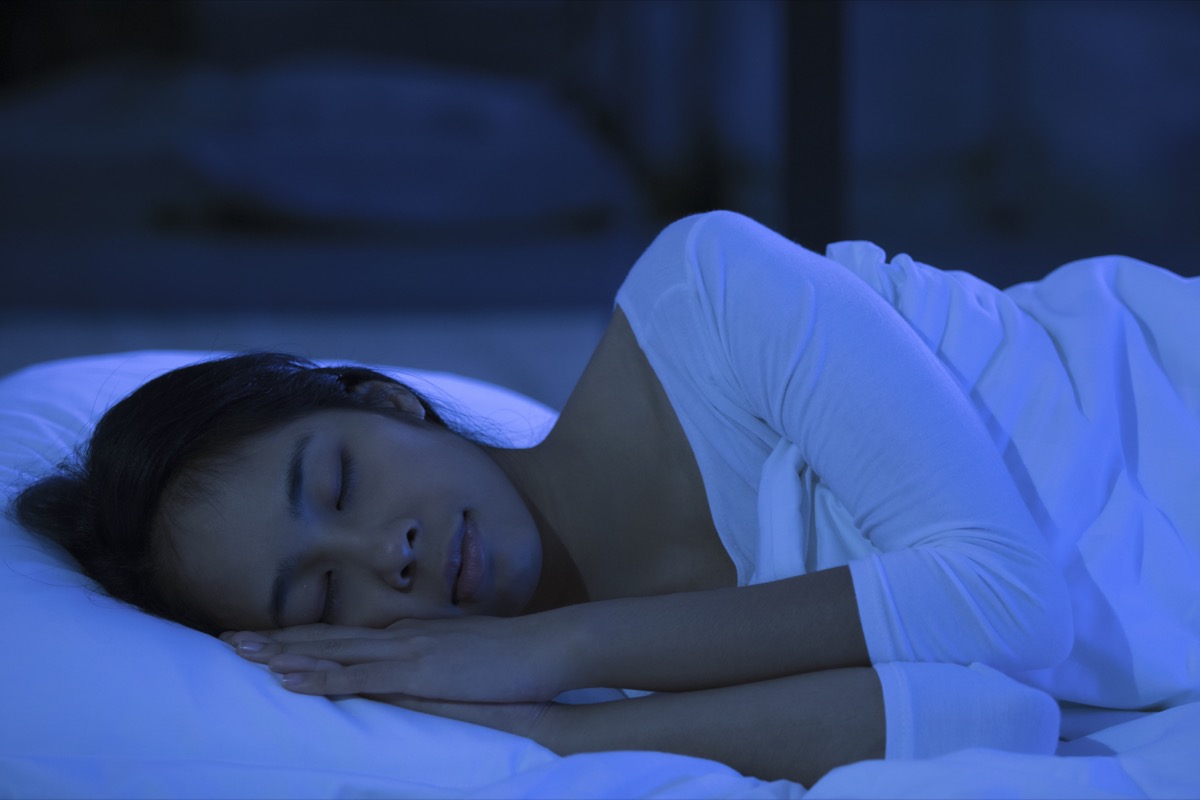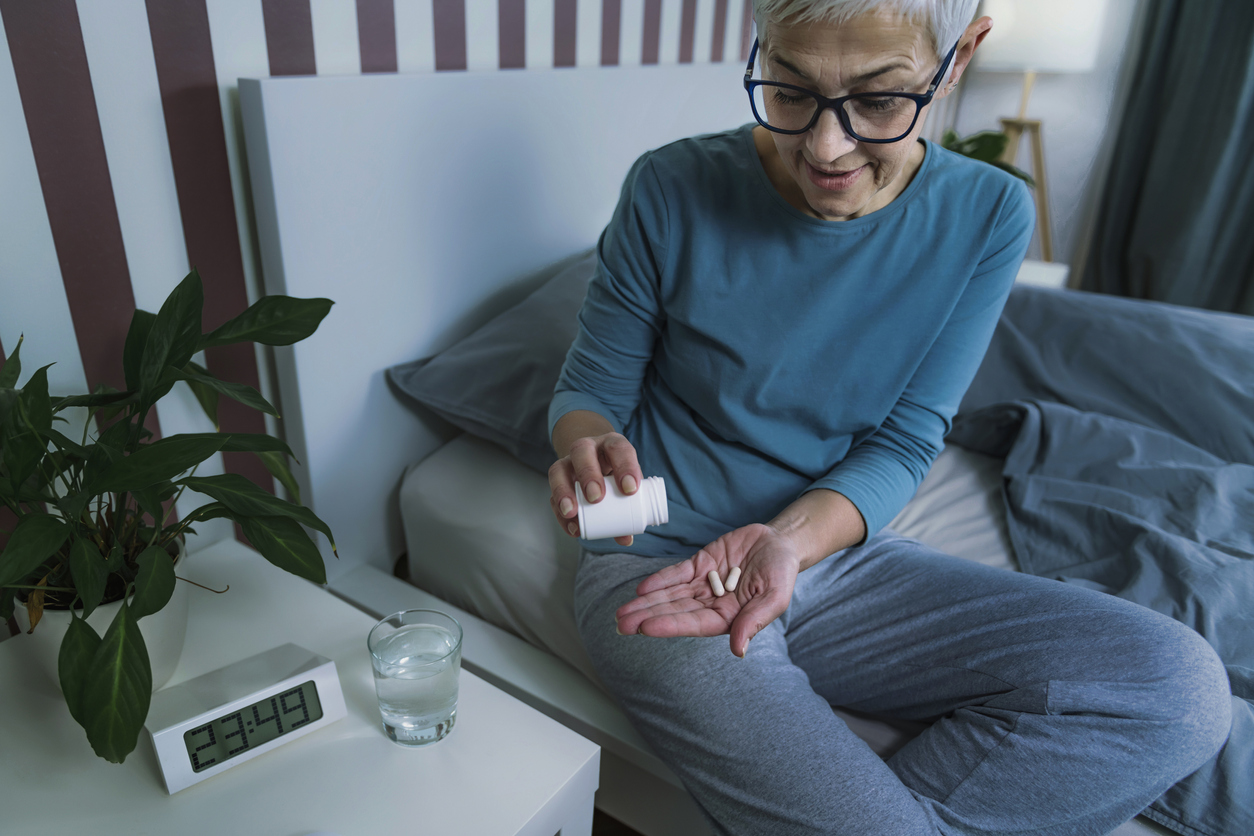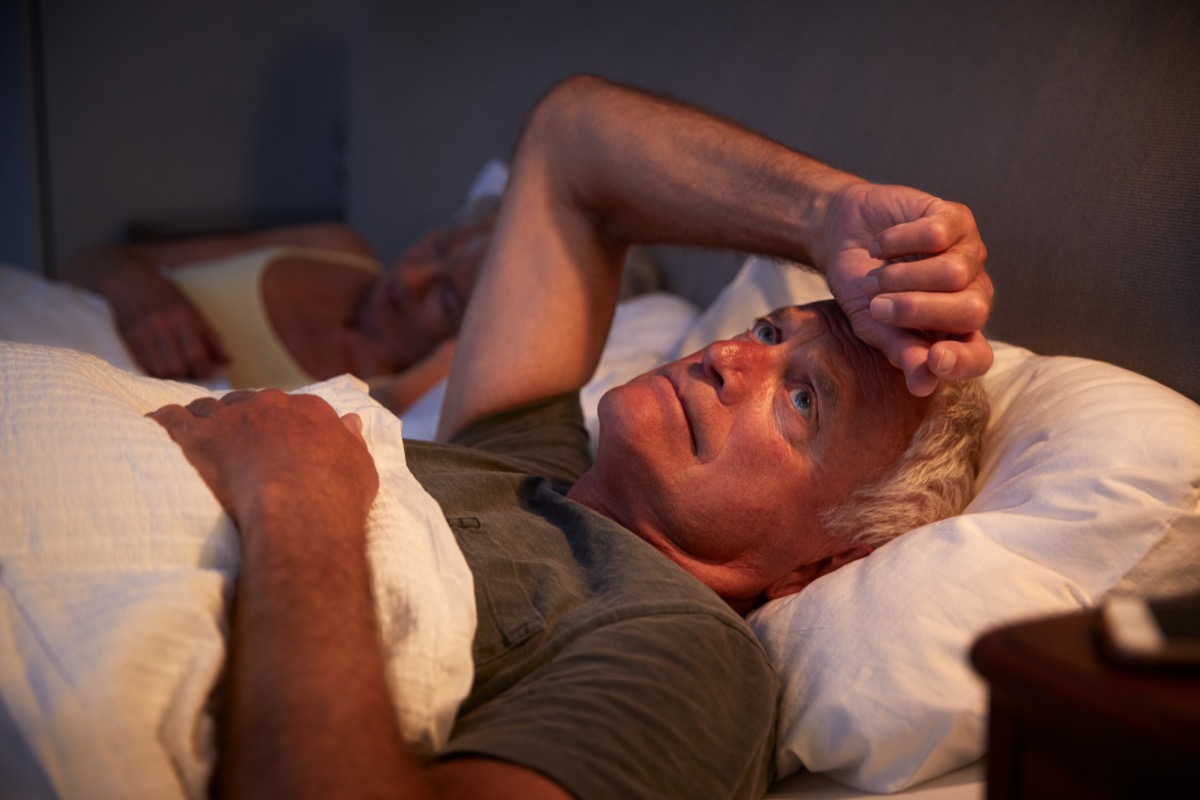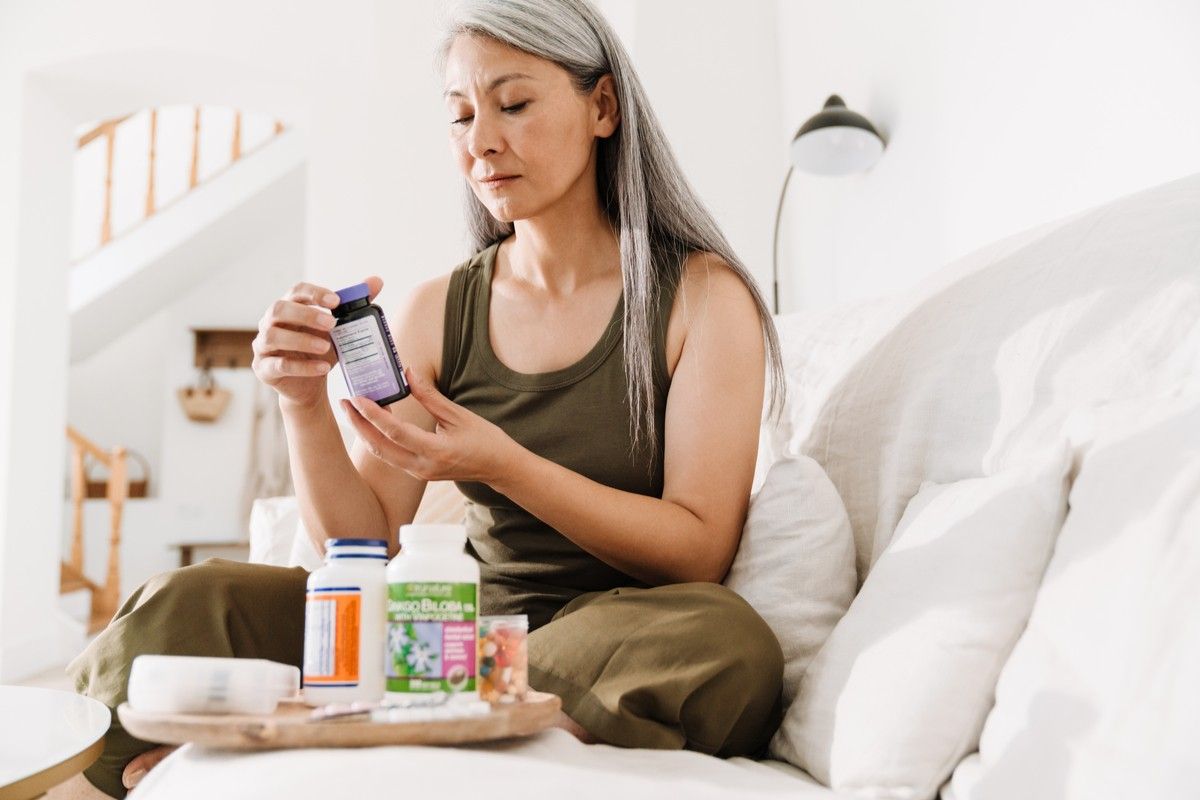I’m a Pharmacist, and This Is the Sleep Aid I Recommend

Getting a good night’s rest—at least seven hours of nightly shut-eye—is crucial to both your physical and mental health. Yet according to the Centers for Disease Control and Prevention (CDC), one in three Americans reports not getting enough sleep.
That’s why we reached out to Tessa Spencer, PharmD, a specialist in community pharmacy and functional medicine, to find out which sleep aids she recommends. She says there’s one product that’s ideal for helping you catch some zzz’s while minimizing the risk of side effects—but advised caution in choosing between brands. Read on to learn which sleep aid she recommends, and why medication should never be your only strategy in the fight against sleepless nights.
READ THIS NEXT: If You’re Over 50, Sleeping With This Item Can Prevent Night Sweats.
Cognitive behavioral therapy should be your first line of defense against insomnia.

Since sleep aids can cause unwanted side effects or dependency, many experts recommend cognitive behavioral therapy (CBT) to help relieve insomnia. “Sleep medications can be an effective short-term treatment—for example, they can provide immediate relief during a period of high stress or grief,” says the Mayo Clinic. “Some newer sleeping medications have been approved for longer use. But they may not be the best long-term insomnia treatment,” their experts write.
CBT works to address the underlying causes of insomnia by improving one’s sleep hygiene, environment, relaxation, and more. Some practitioners may combine CBT with a medicinal component to maximize benefits while keeping doses low.
READ THIS NEXT: If You’re Over 50, Sleeping With This Item Will Prevent Aging.
Spencer recommends this sleep aid for those who struggle to fall asleep.

If you do choose to use a sleep aid as part of your insomnia treatment, Spencer recommends melatonin. “Melatonin is a natural hormone our body produces which regulates many different processes in our bodies,” she explains. “In human studies, melatonin has shown to be effective at improving sleep cycles, but the timing and dose determines how effective it is.”
Spencer says that taking between 0.5 and 5 mg of immediate-release melatonin should help you get to sleep effectively. “However, studies show, doses higher than 5 mg didn’t seem to increase melatonin’s effect,” she notes.
Do this if you need help staying asleep, she says.

If you have no trouble getting to sleep but struggle to stay asleep, Spencer recommends taking an extended-release melatonin formulation. “Immediate release of melatonin will help an individual fall asleep faster, but this can often wear off during the night. An extended-release formulation of melatonin will slowly release melatonin throughout the night, thus promoting a full night’s sleep,” she explains.
Spencer says if your sleep problems don’t seem to improve, you should discontinue your nightly melatonin use after one to two months. “After this time, I would reassess your sleep. Sleep aids are meant to help in the short term, but proper sleep routines, habits and hygiene (like turning off your devices, sleeping in a cool, comfortable room) are going to be your best bet for long-term sleep health,” she explains.
For more health news sent directly to your inbox, sign up for our daily newsletter.
Don’t make this mistake when it comes to melatonin.

Spencer says there’s one important safety concern to bear in mind if you do opt for a treatment plan that includes melatonin: it’s important to buy a USP verified or NSF certified supplement. That’s because uncertified brands may have disparities between labeled content and actual content, she says.
“Based on an analysis of 31 different melatonin supplement brands, the melatonin content of these supplements varied up to almost 500 percent compared to the labeled melatonin content. For example, the most variable sample was a chewable tablet, which are mostly taken by children. The label claimed having 1.5 mg of melatonin in one tablet, but when they tested, it had 9 mg. That is a huge difference,” Spencer notes.
Pressed for her personal favorite melatonin supplements, she recommends immediate-release and extended-release melatonin formulations from Nature Made, noting that the brand’s “purity and accuracy in labeling” sets it apart from others. Speak with your doctor if you have questions about whether melatonin might be right for you.
Best Life offers the most up-to-date information from top experts, new research, and health agencies, but our content is not meant to be a substitute for professional guidance. When it comes to the medication you’re taking or any other health questions you have, always consult your healthcare provider directly.